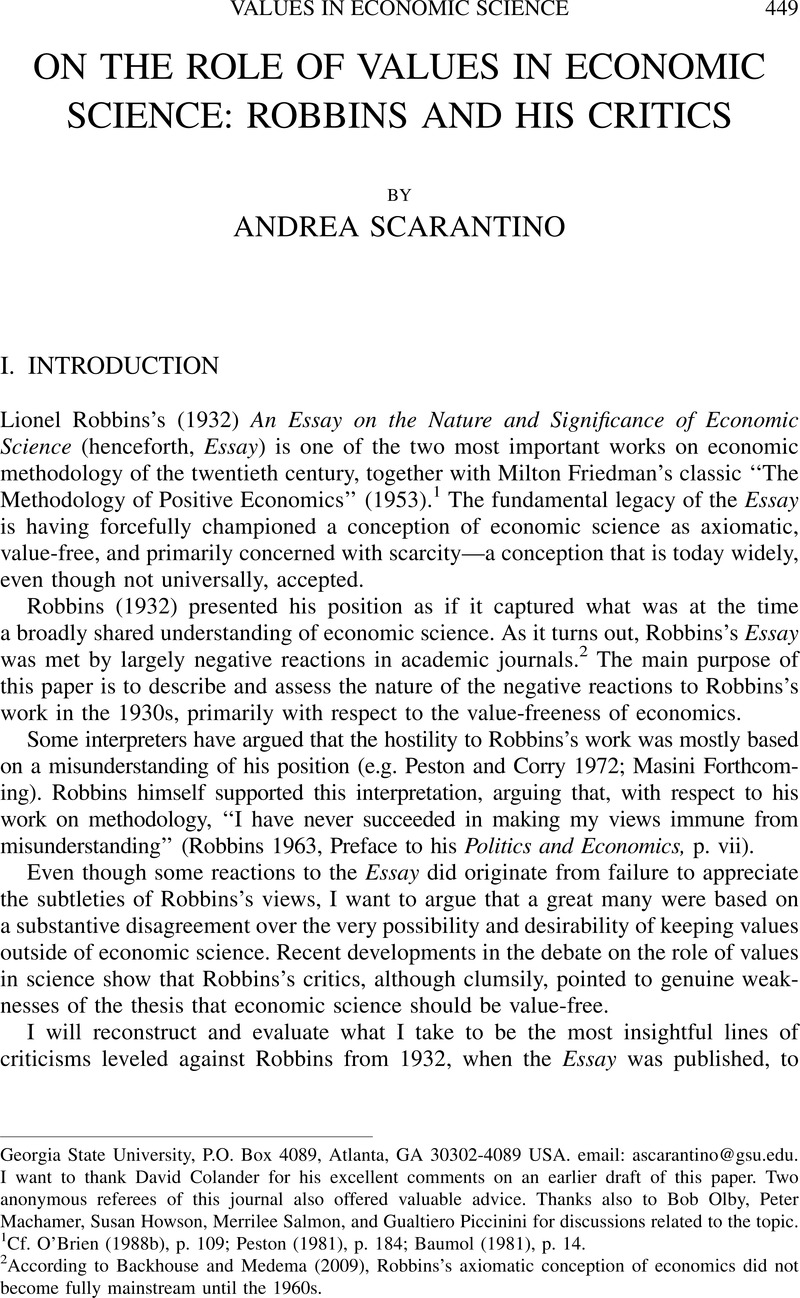Crossref Citations
This article has been cited by the following publications. This list is generated based on data provided by Crossref.
EDWARDS, JOSÉ M.
and
PELLÉ, SOPHIE
2011.
CAPABILITIES FOR THE MISERABLE; HAPPINESS FOR THE SATISFIED.
Journal of the History of Economic Thought,
Vol. 33,
Issue. 3,
p.
335.
Edwards, José M.
and
Pellé, Sophie
2011.
Capabilities for the Miserable; Happiness for the Satisfied.
SSRN Electronic Journal,
Colander, David
and
Su, Huei-Chun
2015.
Making sense of economists' positive-normative distinction.
Journal of Economic Methodology,
Vol. 22,
Issue. 2,
p.
157.
Dumont Oliveira, Thiago
and
Suprinyak, Carlos Eduardo
2018.
Of Time, Uncertainty, and Policy-Making: Lionel Robbinss Lost Philosophy of Political Economy.
SSRN Electronic Journal ,
Masini, Fabio
2018.
Decision-making processes and multilayered institutional order: Lionel Robbins’s legacy.
Cambridge Journal of Economics,
Vol. 42,
Issue. 5,
p.
1459.
Crespo, Ricardo F.
2019.
Liberal Naturalism and Non-epistemic Values.
Foundations of Science,
Vol. 24,
Issue. 2,
p.
247.
Małecka, Magdalena
2021.
Values in economics: a recent revival with a twist.
Journal of Economic Methodology,
Vol. 28,
Issue. 1,
p.
88.
Badiei, Sina
Campagnolo, Gilles
and
Grivaux, Agnès
2022.
Le positif, le normatif et la philosophie économique.
p.
7.
Badiei, Sina
2023.
A contribution to scientific studies of norms in economics inspired by JN Keynes and Popper.
Journal of Economic Methodology,
Vol. 30,
Issue. 4,
p.
290.
Banzhaf, H. Spencer
2023.
Distribution and Disputation: Net Benefits, Equity, and Public Decision-Making.
Journal of Benefit-Cost Analysis,
Vol. 14,
Issue. 2,
p.
205.



